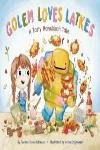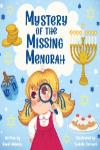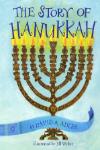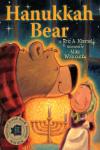Helmi’s Shadow by David Horgan

Buy this book at Amazon or for Kindle or at Bookshop
A Journey of Survival From Russia to East Asia to the American West
Helmi’s Shadow tells the sweeping true story of two Russian Jewish refugees, a mother (Rachel Koskin) and her daughter (Helmi). With determination and courage, they survived decades of hardship in the hidden corners of war-torn Asia and then journeyed across the Pacific at the end of the Second World War to become United States citizens after seeking safe harbor in the unlikely western desert town of Reno, Nevada. This compelling narrative is also a memoir, told lovingly by Helmi’s son, David, of growing up under the wings of these strong women in an unusual American family.
Rachel Koskin was a middle-class Russian Jew born in Odessa, Ukraine, in 1896. Ten years later, her family fled from the murderous pogroms against Jews in the Russian Empire eastward to Harbin, a Russian-controlled city within China’s borders on the harsh plain of Manchuria. Full of lively detail and the struggles of being stateless in a time of war, the narrative follows Rachel through her life in Harbin, which became a center of Russian culture in the Far East; the birth of her daughter, Helmi, in Kobe, Japan; their life together in the slums of Shanghai and back in Japan during World War II, where they endured many more hardships; and their subsequent immigration to the United States.
This remarkable account uncovers a history of refugees living in war-torn China and Japan, a history that to this day remains largely unknown. It is also a story of survival during a long period of upheaval and war—from the Russian Revolution to the Holocaust—and an intimate portrait of an American immigrant family. David reveals both the joys and tragedies he experienced growing up in a multicultural household in post-Second World War America with a Jewish mother, a live-in Russian grandmother, and a devout Irish Catholic American father.
As David develops a clearer awareness of the mysterious past lives of his mother and grandmother—and the impact of these events on his own understanding of the long-term effects of fear, trauma, and loss—he shows us that, even in times of peace and security, we are all shadows of our past, marked by our experiences, whether we choose to reveal them to others or not.
Year first published: 2021

















